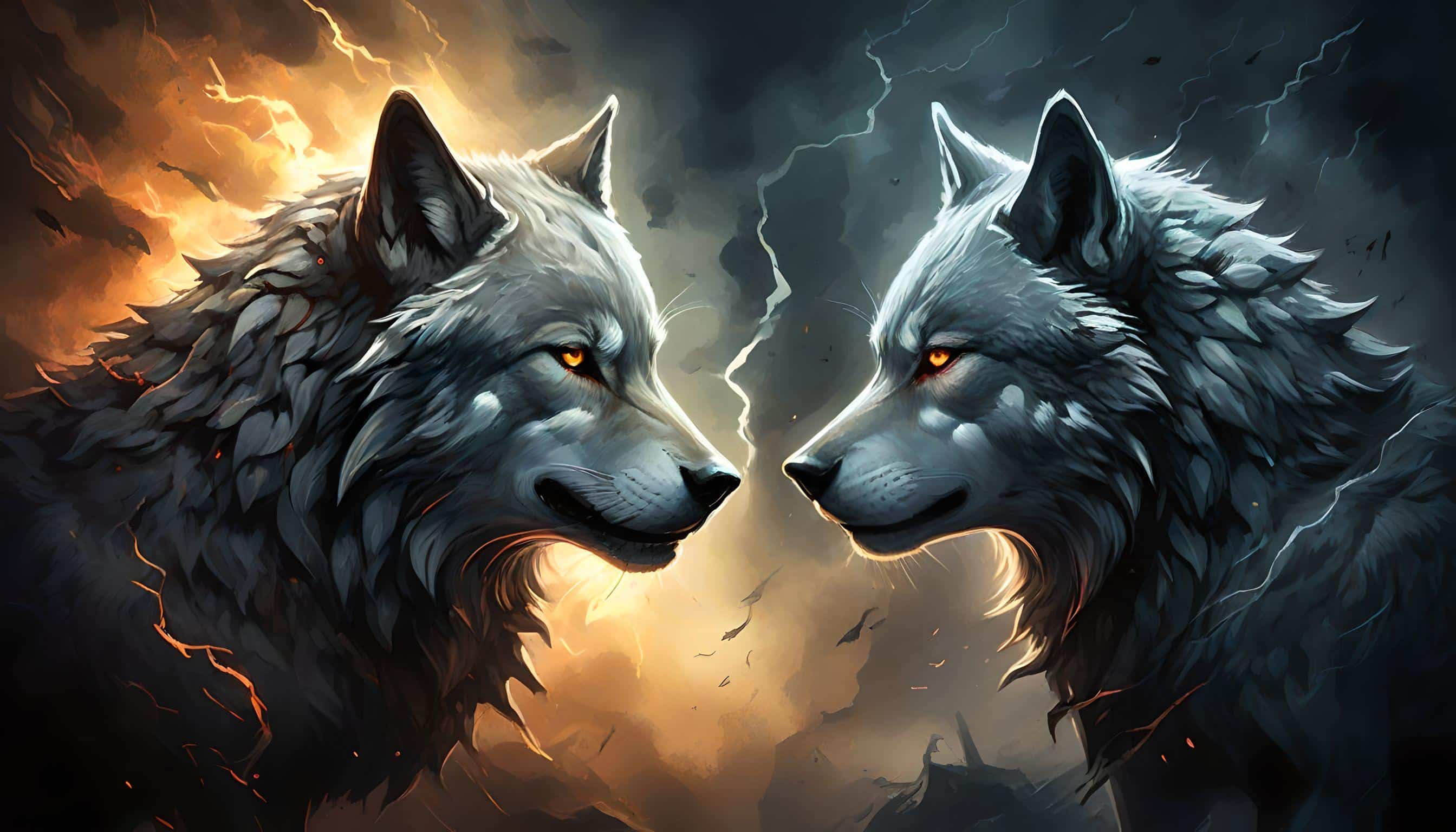Adjust | Thrive #TheOneYouFeed

There’s a wonderful story about an old Cherokee Indian teaching his grandson about life. He explains that there are two wolves inside us which are always at battle. Here is how the story goes:
“A fight is going on inside me,” he said to the boy. It is a terrible fight and it is between two wolves. One is evil – he is anger, envy, sorrow, regret, greed, arrogance, self-pity, guilt, resentment, inferiority, lies, false pride, superiority, and ego. He continued, The other is good – he is joy, peace, love, hope, serenity, humility, kindness, empathy, generosity, truth, compassion, and faith. The grandson thought about it for a minute and then asked his grandfather: “Which wolf will win?” The old Cherokee replied, “The one you feed”.
The story goes on:
“However, if you feed them right, they both win and so do you. For the black wolf has many qualities – tenacity, courage and strong-will. On the other hand, the white wolf has compassion, caring and the ability to recognise what’s in the best interest of all. The white wolf needs the black wolf at his side. To feed and care for both means they will serve you well and do nothing that is not a part of something more significant, something good, something of life. Feed them both, and there will be no more internal struggle for your attention.”
I’ve read this story many times, and always ended where the boy’s question was answered by “the one you feed”. I never paid attention to “if you feed them right, they both win and so do you”. Thinking about the wolves and the pair of opposites, led me to polarities.
Polarities
Polarities are the state of having two opposite or contradictory tendencies on a spectrum. So things that appear to be opposites are actually two inseparable parts of the same thing. Think of light and dark, or hot and cold – you can’t have one without the potential for the other. Polarities are not always objective. If they relate to emotional states, perception and way of thinking, they are subjective. For one person the opposite of love is hate, for others it can be anger or fear. As a result, polarities can be sources of frustration and conflict, preventing us from seeing opportunities by limiting our perspective.
Our limited perspective
Usually when facing a problem, our perspective becomes limited. In the book, How to Reduce Stress with the Emotional Management Method, the authors state that when looking at a problem through the wider side of a funnel, we only see a small part on the other side. When using the funnel perspective as a metaphor for how our view is narrowed, we realise we can only see our current situation to a limited extent. We only notice what happened in relation to our emotions. Realising our perspective is limited enables us to operate outside of “the limitation” by viewing the problem from a new perspective.
Now, thinking about the opposite qualities of the black wolf, the black wolf can become a fear wolf, and we feed this wolf by negative self-talk. Fear tells us that we don’t deserve or cannot get something. Negative thoughts create a range of emotions. Negative thinking is normal. However, it saps energy, and wears down self-confidence. If negative thinking becomes persistent, it leads to depression and self-destructive behaviour. The opposite of an unpleasant emotion caused by the perception of fear or danger is courage and bravery. Feeding courage and bravery can prevent the downward spiral.
Our power
We have a tremendous amount of power over our experiences. What we focus on grows. The reason for that is simple – when we make a statement like “I’m no good”, our mind looks for proof. Over time, through this process, we attract what we focus on. Our brains are complex and have to process millions of bits of data. In order to make sure that the “system” doesn’t get overloaded and crashes, it uses a filter. This filter determines the lens through which we view the world.
This part of the brain is called the Reticular Activating System (RAS). The RAS is the reason why, when you buy a new t-shirt, you suddenly see other people wearing that t-shirt too. Our brains are literally wired to bring what we consider as important to our consciousness. What we are interested in at the moment, as well as our deeper belief systems, have a lot of control over what information is let through.
So What?
The narrative of the wolves highlights the importance and impact of our polarities. Our thoughts can be our worst enemy. That is, if we let them. Our RAS plays an important role in motivation and goal setting. Belief systems are strengthened because of the lens through which we view the world and how we prime our RAS. Constant negative thoughts lead to pessimism. Our RAS is filtered to present us with every negative piece of “data”. Our RAS shapes reality so we need to start taking control by priming it to focus on the things we want.
But how? “Feeding them right”
Being able to see polarities and their influence are part of growth and development. Stress and strain sometimes silence one side of the spectrum. We need to think about how we are “feeding” negative thoughts, so we are able to reverse the funnel to see opportunities. By manoeuvring between polarities, we can see a different perspective, giving us the inspiration to respond in a new way, without giving into the routine way of reaction.
To ponder
- Visualise what you want, enabling your subconscious mind to respond.
- Focus on solutions instead of problems and obstacles.
Remember: it’s not magic that suddenly turns life in your favour. Rather, by priming your RAS you enhance your filter and view.
“If you feed them right, they both win and so do you.”

0 Comments